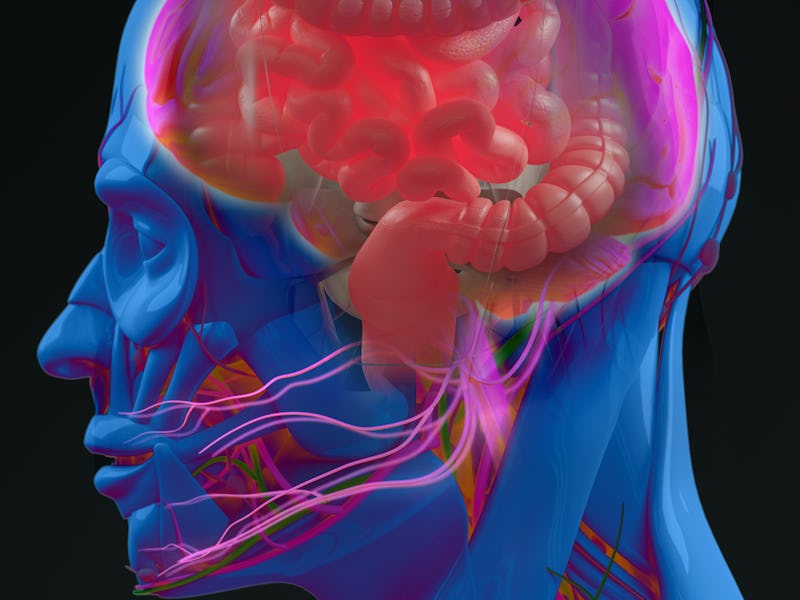Scientists think gut probiotics might help treat depression
Plus: The search for alien life on Hycean worlds.

Do you like kimchi? Personally, I eat it by the jar. That spicy, salty, fermented cabbage always gives my gut a zing. Perhaps, according to a new study, it has also been changing my mind. A team of psychologists has found that increased consumption of Lactobacillus, a common probiotic found in foods such as kimchi and yogurt, is associated with decreased depressive symptoms.
Check out the study yourself, and then maybe change up your plans for lunch.
This is an adapted version of the Inverse Daily newsletter for Tuesday, June 28, 2022. Subscribe for free and learn something new every day.
Alien life, are you there?
One type of exoplanet could support life outside the habitable zone
We need to be open-minded about where we search for alien life, says University of Zurich planetary scientist Marit Mol Lous and her team.
The researchers recently published a study in the journal Nature Astronomy that built computer models of super-Earths orbiting Sun-like stars, all with atmospheres made of a mix of hydrogen and helium.
Atmospheres specifically born of these two elements could keep exoplanets warm enough to be habitable for billions of years. That could be enough time for life to evolve, based on the one example we have so far: Earth.
Some planetary scientists have dubbed these hypothetical planets Hycean worlds: super-Earths with rocky cores, watery oceans, and their original atmospheres of hydrogen and helium. Life on a Hycean world, if it exists, “would life under considerably different conditions than most life on Earth,” wrote Mol Lous. But it is worth trying to explore.
Happiness in a jar.
Probiotics may help with depression, according to study
Lately, the gut-brain axis has been all the rage. This link, which chemically connects brain and digestive track, flows in both directions and involves the autonomic nervous system, the enteric nervous system, the neuroendocrine system, and the immune system. It’s why many scientists think the gut microbiome can influence mental health.
Now a team of researchers says that probiotics may help treat the most common mental illness out there: depression.
In new study published in the journal Translational Psychiatry, researchers found that participants who pair antidepressants with probiotics experience a greater improvement in depressive symptoms compared to people who only take antidepressants. It is the first randomized controlled trial to determine whether probiotic supplementation reduces depressive symptoms.
While talk therapy, exercise, and medications are the most effective and established ways to help ease depression, probiotics are an intriguing add-on, with increasing studies supporting their effectiveness.
This is your brain on kettlebells.
Why “micro-workouts” can have significant mental and physical benefits
Are there mental benefits to doing several short workouts throughout the day?
Yes, according to Justin Rhodes, a psychologist at the University of Illinois whose lab researches the effects genes and environment have on voluntary behavior.
Moving very quickly shifts a person’s hippocampus into overdrive, during which time it fires off a higher number of neurons than usual. This “acute stress” also sends adrenaline into the bloodstream. Adrenaline has been shown to help memory and cognitive function, which is why we feel more focused right after a sprint or a squat session.
If you’re looking to keep your brain robust long-term, and stave off cognitive decline, workouts might not have to be long, says Rhodes — they just need to be tough. They should also involve most of your muscles, and be done regularly.
It’s the chicken, not the egg.
What makes eggs organic is more complicated than you think
Organic foods are thought to have more nutrients. Does that ring true for something as simple as an egg?
According to a USDA expert, organic eggs are all about how the parent chicken is treated. For instance, organic egg chickens must be able to venture outdoors, find shade and direct sunlight, shelter, access clean water, and have areas where they can clean, exercise, and roost.
Still, this doesn’t necessarily translate to humane treatment. An organic farm can technically meet all these requirements, but only give chickens very limited outdoor access. And cage-free eggs, who have more space to roam, may come from chickens that can get food and water whenever they need it, but their overall conditions might be awful.
So, one type of egg isn’t necessarily healthier than another, but the setting in which the chickens are raised can certainly be more or less healthy. Whether an organic egg is worth twice the price of a normal one is up to you.
The Boeing 314 Clipper flying boat spent about 24 hours in the air.
About this newsletter: Do you think it can be improved? Have a story idea? Want to share a story about the time you met an astronaut? Send those thoughts and more to newsletter@inverse.com.
- On this day in history: On June 28, 1939, the world’s first transatlantic flight, a Boeing 314 Clipper flying boat, took off, journeying from Long Island to Marseille, France.
- Song of the day: “Throat Goat” by Kim Petras